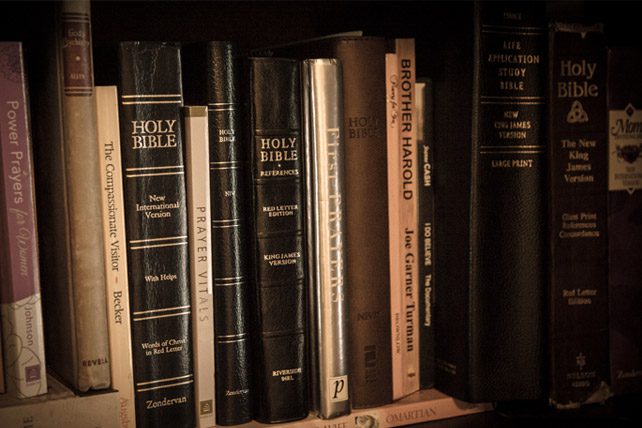Recently, a 20-something friend became a new Christian, and he asked me, “What are the top 10 things for a new Christian to learn within the first year?” (Apparently, he is a David Letterman fan.)
This is a wise question because if you are off by a few degrees at the start and you travel that path for a while, you will be off by miles later. I know that from experience. I have been a Christian for over 25 years, and God has had to redirect me on multiple things because of what I mistakenly believed early on about being a Christian. And it is better to learn sooner than later.
10 Things a New Christian Should Know Within the 1st Year
So here are the 10 things (not necessarily in any particular order) that I thought my new Christian friend should sink down deep into his heart, head and hands as he travels his first year with Jesus:
1. God Loves Us
The one thing that the Bible emphasizes more than us loving God and people is that God loves us. He loves us first and most. God isn’t in heaven plucking a daisy saying, “I love you” when you obey and “I love you not” when you sin. He cannot not love you (Rom. 5:8 and 1 Jn. 4:16).
2. Relationship First!
Your motivation to and the purpose of learning, serving, worshipping, giving, reaching, reading, praying, etc. is to grow relationally more in love with God and people (Mt. 22:36-40).
3. You not only are saved by grace; you grow by it, too.
A common trap for new and growing Christians is trying to clean up their lives without God’s help. This is a false equation: The less you sin = the less you need God’s grace. You can’t sin less and love more without the strength of God’s grace.
4. Don’t trample over the Great Commandment trying to obey the Great Commission.
New and enthusiastic Christians often do this. Instead, lead people to Jesus by loving people to Jesus (1 Cor. 13:1-3). If they ask you why you live the way you do, humbly and simply share with them why you put your hope in Jesus.
5. Love your neighbors—your literal neighbors.
Do this because you are a Christian, not just because you want them to be Christians.
6. It’s All About Jesus.
Focus on Jesus, His cross, His resurrection and His kingdom. When you confessed Jesus as the living Lord and Messiah, you never said—and will never say—anything more meaningful. Jesus is God with skin. No other “religious leader” (Moses, Buddha, Muhammad) is His equal. They were mere men; Jesus is God who became a man. He is the center and circumference—the hub and rim of all of life and creation. All of the world’s greatest gifts—love, life, truth, grace, etc.—have a name. Jesus.
7. God cares about your whole life, not just your “spiritual life.”
It is a mistake to think that God is only concerned about a section of your life called “your soul” or “your spirit.” God cares about and is to be Lord of all of your life—personal, emotional, social, familial, financial, physical, vocational, sexual, intellectual and so on.
8. Love other Christians, even when they are different.
Unfortunately, many Christians and churches view their “brand” of Christianity as the only true or most true type of Christianity. They may not think they are the only Christians, but they do think they are the best or most right ones. This is a prideful and sinful attitude that grieves Jesus and dismembers His body. Strive for unity in the body of Christ by praying humbly and thankfully for other Christians.
9. Pray with your Bible open.
There are many different spiritual exercises (fasting, solitude, serving, etc.), but the two most important ones are communicating and communing with God through prayer and listening to and learning about God through the Scriptures. Prayerfully read about Jesus (in Matthew, Mark, Luke and John). Prayerfully read about the beginning of the church in a book called Acts. Prayerfully read some letters written by Christians for Christians—some good ones to start with are James, Philippians and Ephesians.
10. Find a Christian mentor.
You will need help and encouragement in this journey with Jesus. Ask an older Christian (of the same gender as you) to mentor you. Look for someone who displays the attitudes and actions that were described above. Be a blessing to them in return.
Christianity is not a list, but a life; it’s not a chart, but a charter. But a new Christian will learn new things. Some of those things will be true but not important. Some things will be off by degrees that can lead them astray. Other things will be just plain wrong. Help a new Christian learn to follow Jesus by being their best at what matters most to Him.

























